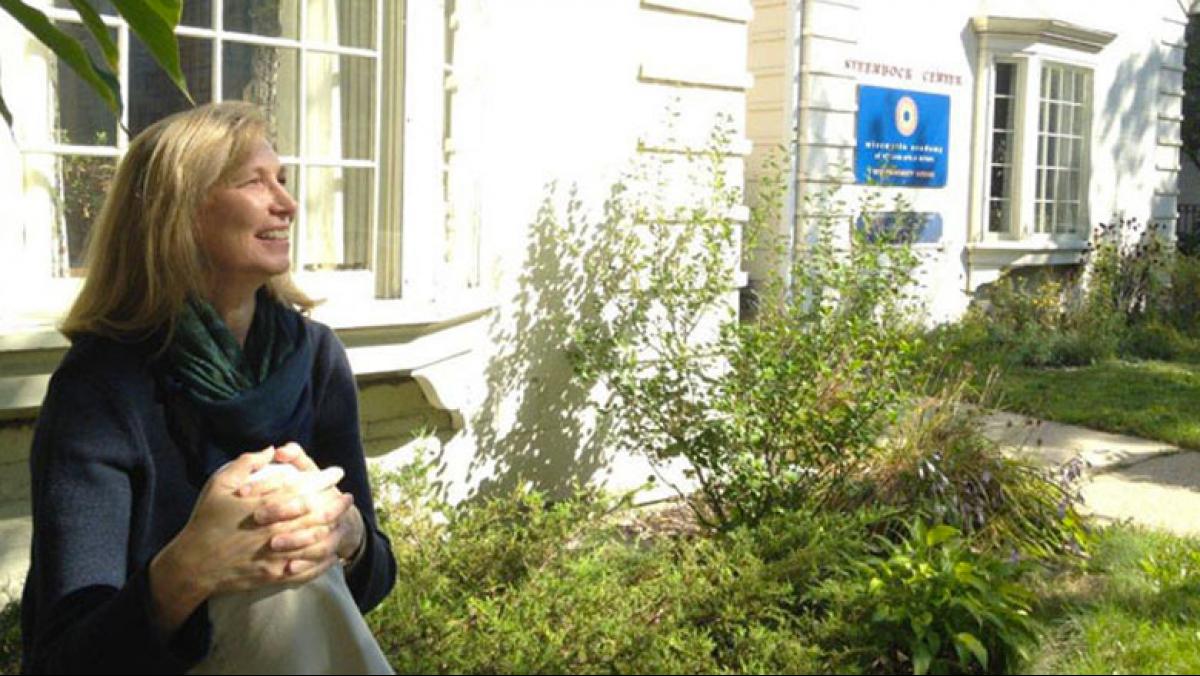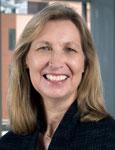One of the rewards of working at the Wisconsin Academy is being able to play in the same pool with some of the leading thinkers from across the spectrum of the sciences, arts, and letters as they wrap their heads around the complicated issues of today.
The statement, “Never doubt that a small group of thoughtful, committed citizens can change the world” is attributed to the anthropologist Margaret Mead. I have no doubt that the small discussion and working groups that the Academy is convening are contributing to positive change, and providing conceptual tools that we and others (we like to share) can use to build a better Wisconsin. This is at the heart of the Wisconsin Academy’s mission.
While we regularly convene conversations with thoughtful, committed citizens, I wouldn’t consider the Wisconsin Academy a think tank. But, our public talks, this magazine, and Wisconsin Initiatives forums and working groups all provide a rare and important space for deliberating—and finding solutions that move us forward.
Convening is more of an art form than a set of standard tasks. We strive to bring together people who are willing to park egos at the door and offer the best of their knowledge and experience with others who are willing to do the same. The people we like to ask to join us are all motivated by a desire to make a meaningful contribution to our quality of life in Wisconsin. They are also wicked smart.
I enjoy mixing up the theorists with the practitioners, the academics and the advocates, the community leaders and corporate leaders. Within these deliberative crucibles, fascinating but distracting background noise and barely formed hunches are burned away—and extremely solid ideas emerge. This only works if people are willing to come to the table with open minds, and the willingness to listen and reflect, as well as to be surprised at where conversation might take them.
Not everyone can do this (or wants to), and not every group that we convene is a triumph of collective epiphany-level wisdom. Sometimes progress is incremental. But, more often than not, several powerful observations or conclusions will come out of a rigorous discussion or thoughtful critique that provide a jaw-dropping new insight, a “Why couldn’t we do X?!” or that proverbial “A-ha!” moment.
These moments affirm for me that people of good will and wisdom are eager to play their part in doing the most good for the most people. These moments also remind me that there are a lot of great Wisconsin minds we can tap in this endeavor. In an era where celebrity meltdowns seem to dominate news headlines and partisan gridlock and government shutdown are the status quo, it is reassuring to be playing a small—but essential—role in fueling the machinery of real progress.
Here is a just of handful of some of the big questions our Wisconsin Initiative working groups are wrestling with right now:
- Without a long-term energy plan, will Wisconsin fall behind neighboring states that are now diversifying their energy sources, and how will this affect our electrical rates and overall economy?
- Given Wisconsin’s unique geography, landscape, culture, and mix of agriculture, manufacturing, and the “idea economy,” how do we balance our energy consumption with the need to adapt to a changing climate?
- In a world with growing demand for fresh water, does Wisconsin have an adequate framework to protect both the quality and supply of our surface and ground water?
- Will Wisconsin’s groundbreaking new rules to tackle the phosphorus pollution that chokes our lakes and streams with algae become a model for the Great Lakes region and beyond, and what will it take to make that possible?
- What can modern social science and cultural knowledge teach us about the best ways to communicate complex issues like climate change and water sovereignty to people in Wisconsin so they can effectively preserve and enhance our natural and cultural resources?
We’ll be sharing our progress on answers to these and other thorny questions at our Resilient Wisconsin public forum in Madison on May 6. We hope you will save the date for what we expect to be a rich exchange of ideas.
What are the big questions weighing on your mind about Wisconsin’s future? Can science, art, or literature shed light on the answers? If so, we hope the Wisconsin Academy can be one of those sources of light.
Questions or comments? E-mail jelder@wisconsinacademy.org




